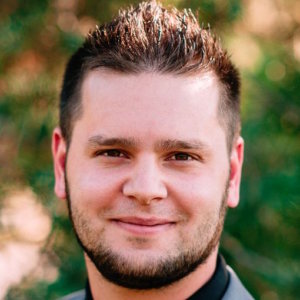(LifeSiteNews) — Despite a growing and heated debate about transgender ideology in many countries over the past several years, the governments of two nations remain almost entirely in the grip of trans activists: Canada and Ireland.
An August 19 report from Irish media outlet Gript highlighted just how far gender ideology has seeped into the apparatus of the state. A training video for Ireland’s Health Service Executive (HSE) on “Pronoun Awareness Training,” for example, details for staff how to deal with the fact that “there are new pronouns coming out all the time.” The video was “fully funded by HSE Social Inclusion.”
READ: Scotland drops charges against pro-life grandmother arrested for holding sign in ‘buffer zone’
New pronouns are emerging, of course, to accommodate the ever-multiplying number of new genders. Ben Scallan of Gript highlighted a few of the assertions made in the 30-minute video, which notes in the introduction that “the aim of this module is to raise awareness about the use of pronouns and to promote LGBTIQ+ inclusive spaces” – which HSE is most certainly one. The claims include:
Biological sex and gender are distinct and biological sex itself “can change over time.” The first claim is a central tenet of gender ideology; the second is a more novel take.
Those who identify as “non-binary” – that is, people who reject both male and female – should be referred to by “they/them” pronouns, but some (confusingly) might want other combinations, such as “she/they.” This does not make sense, but it doesn’t have to, as we will find out later.
Those who decline to use someone’s “preferred pronouns” are “a problem.” According to the video: “If you use the wrong pronouns, anyone can make mistakes, so acknowledge, apologise, and move on. It does become a problem when people intentionally use the wrong pronouns. It dismisses and disrespects the person.”
These pronouns apply even when the LGBTetc person is not around, and failure to use them is an admission that the staff member is “refusing to accept” that person’s chosen gender identity, meaning that re-education is necessary:
If someone is consistently using the wrong pronouns, there is definitely need for awareness raising and education. Because if it’s persistent and intentional, it does indicate that the person is refusing to accept the person’s identity. And that can cause issues for the person who is identifying.
Translation: Pronoun Awareness, or else you’ll be “invited” to a struggle session.
Other sins include “deadnaming,” which is referencing a person’s previous name before their gender switch, or “misgendering,” which is referring to the biological sex (which, contrary to their assertions, does not change) rather than their gender identity. According to the training:
People’s names/titles change throughout their lives, and we generally accept and respect these changes without question. For example, when someone gets married and there is a change of surname. We apologise when getting these names wrong if we are corrected and we should treat change of pronouns the same way.
But it gets more confusing still. While pronouns are absolutely essential, they may also be secret.
“Respecting pronouns is vital across all roles, whether you’re in admin, HR, clinical, or estates,” the training states. “Use your own pronouns in email signature if comfortable to do so … Wear a pronoun badge or sticker … Have pronoun posters in waiting rooms/office spaces. If you are not sure of someone’s pronouns, do not assume, just ask or use they/them pronouns until you know.”
But also, HSE staff should ask a person if their pronouns are “open” or “confidential.” And no matter what they say, it is important to act like all of this is very normal, indeed: “Avoid shocked or surprised facial expressions and be mindful of body language when others share their pronouns.” (A possible example, offered with a huge smile: “Oh, you’re a … ze/zir? I’m so happy to hear that, zir!”)
READ: ‘Nonbinary’ park ranger fired for hanging transgender ‘pride’ flag at Yosemite
For those who might be understandably confused by all of this, the training video assures staffers not to worry. “We don’t need to fully understand something in order to accept it,” it says. “There are many pronouns that I have never heard of before, and there are new pronouns, neo pronouns, coming out all the time. And it’s OK that we don’t understand them all. We can still accept them, and accept the person’s gender identity and what they are sharing with us.”
Trust the plan, guys. There are many pronouns to learn, more pronouns and neo-pronouns coming out all the time, and it’s your job to memorize them, correctly apply them, in public and in private, so long as the pronouns are not confidential, and never, ever look surprised by any of this, or think you need to actually understand what’s going on. That’s not the important thing. The important thing is that you follow the new rules – or else.
















